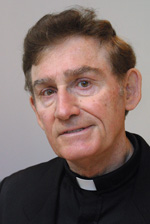I’ve never felt so refreshed. Momentarily, I have lived my favorite Italian proverb, “l’arte di non fare niente,” or “practicing the art of doing nothing.”
My day started hectically: An assignment was due, meetings were scheduled, and I needed to prepare for a retreat I was conducting.
At noon, I took a lunch break with the intention of returning to my work as quickly as possible. As I walked home from the restaurant on the mall near the U.S. Capitol in Washington the thought occurred, “Why not practice ‘l’arte di non fare niente,’ sit on a bench, forget all activities, and set no time limits.”
Gillian Anderson, an American actress, once wrote, “I have a real problem with stillness, with just stopping and being quiet.”
I concur! Guilt, urgency and restlessness conspired against me that day, giving me the judders. It was extremely difficult to stop with everything in me desiring to rush off.
[hotblock]
Our accelerated age of hyperactivity has spawned countless books on ways to counter its damaging effects, making us wonder if this rushed, nonstop, torrid pace is one reason why so many celebrities die from drug overdoses. Were they searching for the peace of mind that stillness generates? Did they choose the wrong means for achieving it? And what might be the right means for accomplishing this desired stillness?
First, let’s identify the culprits depriving us of stillness. For example, are we on the Internet or texting nonstop? Are we glued to the news, not knowing when to stop, or do we have a problem saying “no”? Have these practices become an addiction? If so, admit the addiction. Humble admission is, and always has been, the first step to recovery.
Second, take the offensive. Kristin Armstrong, an Olympic gold medalist in cycling, points out, “When everything is moving and shifting, the only way to counteract chaos is stillness. When things feel extraordinary, strive for ordinary. When the surface is wavy, dive deeper for quieter waters.”
In other words, concede that you have a predicament, bite the bullet and move on.
Third, to achieve stillness, give it a supernatural context. This is something that Blessed Teresa of Kolkata said well by stating, “We cannot find God in noise or agitation. In nature we find silence — the trees, flowers and grass grow in silence. The stars, the moon and the sun move in silence. … What is essential is not what we say but what God tells us and what he tells others through us. In silence he listens to us; in silence he speaks to our souls. In silence we are granted the privilege of listening to his voice.”




Share this story